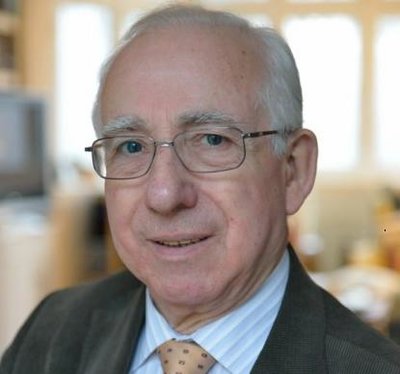Irreversible / Permanent Damage
- Cognitive impairment: In a meta-analysis on cognitive effects from BZ use, it was concluded: “data from this study do not support a full recovery, at least in the first 6 months following cessation and suggests that there may be some permanent deficits”. (Barker et al., 2004) 1 Another meta-analysis concluded: “patients did not return to levels of functioning that matched BZ-free controls.” (Stewart S, 2005) 2 This is also noted in a recent paper by Prof. Tajima. (Tajima, 2012) 3
- Loss in ability to cope with stress: As indicated in The Ashton Manual, “after drug withdrawal, individuals can be left with heightened central nervous system excitability and increased sensitivity to stress due to an alteration in the activity of receptors in brain GABA neurones.” (Ashton H, 2011) 4
- Alzheimer’s disease: A recent case-control study concluded that exposure to BZs lasting more than 180 days was associated with a two fold increase in risk of developing Alzheimer’s disease. (de Gage SB et al., 2014) 5
- Mortality: According to a recent cohort-study, “Prescriptions for these drugs (anxiolytics and hypnotics) were associated with significantly increased risks of mortality. There was an estimated overall statistically significant doubling of the hazard of death (hazard ratio 2.08), after adjusting for a wide range of potential confounders.” “There were approximately four excess deaths linked to drug use per 100 people followed for an average of 7.6 years after their first prescription”. I.e. 4 unnecessary deaths per 100 people prescribed anxiolytics or hypnotics. (Weich S et al., 2014) 6
- Yet to be discovered: There is much more in the way of permanent damage from what appears above; it’s just that it takes science a long time to catch up with what’s actually happening. Unfortunately during that time much more damage continues to be done. (Consider this advice from Dr. Vernon Coleman).
- Children: A Japan Times article reported that doctors have been prescribing tranquilizers and sleeping pills to children and “Nearly 3 out of 10 pediatric specialists have prescribed psychotropic medication to preschoolers”. (The Japan Times, 2011) 7 According to Prof. Ashton, the brain continues to develop until about the age of 21. Giving BZs to children impairs this development and prevents the learning of new skills, especially skills for coping with anxiety and adversity and cognitive (intellectual) skills, so that the child may never reach his/her full intellectual or emotional potential. (Yomiuri, Ashton H, 2012) 8 This problem is seen worldwide and is not limited to Japan.
- Irreversible damage: The Japan Ministry of Health’s homepage states “If incorrectly used, tranquilizers, sleeping agents etc. can also cause dependency (pg.1). Unfortunately, once a state of dependency has formed, it is thought that the brain does not return to its original state. Subsequently, there is no complete recovery from dependency (pg.8). In cases where dependency has already formed with abnormalities, even if the drugs are discontinued, it is said that the brain does not completely return to its original state (pg.10).” (Japan Ministry of Health). 9
- Question: Irreversible or permanent damage from alcohol and illicit drugs is well widely recognized as established fact. Despite the fact BZs are: (1) significantly more addictive, (2) have an incomparably longer duration of withdrawal, (3) there are countless ongoing complaints from sufferers; many doctors still appear to believe there are no long term implications. How can people possibly rule out the clear possibility that they do in fact cause irreversible damage?
- Case example: Here is a case example of a man who simply went to his dentist (founder of benzo.org.uk).
Top of Page
- Barker MJ, Greenwood KM, Jackson M, Crowe SF. Cognitive effects of long-term benzodiazepine use: a meta-analysis. CNS Drugs 2004; 18 (1): 37–48.
- Stewart SA. The effects of benzodiazepines on cognition. J Clin Psychiatry 2005; 66 (Suppl):S9-S13.J Clin Psychiatry. 2005; 66 Suppl 2: 9-13.
- 田島治、辻敬一郎:特集 身体疾患と向精神薬 II.向精神薬の使用法と留意点 70 (1): 45, 2012. (Tajima O, Keiichiro Tsuji. Special Edition – Physical Disorders & Psychotropic Drugs: II. Uses and cautions for psychotropic drugs 2012; 70 (1): 45.)
- Ashton H. Supplement to Benzodiazepines: How They Work and How to Withdraw 2012.
- Sophie Billioti de Gage, Yola Moride, Thierry Ducruet, Tobias Kurth, Hélène Verdoux, Marie Tournier, Antoine Pariente, Bernard Bégaud. Benzodiazepine use and risk of Alzheimer’s disease: case-control study. BMJ 2104; 349: g5205.
- Scott Weich, Hannah Louise Pearce, Peter Croft, Swaran Singh, Ilana Crome, James Bashford, Martin Frisher. Effect of anxiolytic and hypnotic drug prescriptions on mortality hazards: retrospective cohort study. BMJ 2014; 348: g1996.
- 30% of Doctors Give Psychotropics to Tots with Disorders. The Japan Times (Japan) [online] 2011 Mar 11.
- 佐藤記者.抗不安・睡眠薬依存(8)マニュアル公開記念・アシュトン教授に聞いた.読売新聞(日本)[オンライン] 2012年8月20日.(Sato M. Anxiolytic/hypnotic drug dependency (8): In commemoration of publicizing the manual in Japanese, we asked Prof. Ashton. Yomiuri Newspaper (Japan) [online] 2012 Aug 20.)
- 厚生労働省医薬食品局監視指導・麻薬対策課.ご家族の薬物問題でお困りの方へ:薬物依存症を理解しましょう.1, 8, 10, 2013年12月31日.
Top of Page

Professor Malcolm Lader: Emeritus Professor of Clinical Psychopharmacology, Institute of Psychiatry, University of London, England, Adviser to the World Health Organisation on drugs used in psychiatry (Ran a Benzodiazepine Withdrawal Clinic in London and has published more than 100 papers on the subject of benzodiazepines).
On benzodiazepine brain damage reported to the Medical Research Council in January 1982: “The results didn't surprise us because we already knew long-term alcohol use could cause permanent brain changes. There should have been a really good, large-scale study but I was never given the facilities or resources to do it. I asked to set up a unit to research benzos but they turned me down... they could have set-up a special safety committee, but they didn't even do that. I am not going to speculate why; I was grateful for the support they did give me. There were always competing interests for the same resources, so maybe it wasn't regarded as important enough. I was getting on with other research and didn't want to be labelled as the person who just pushed benzos... I should have been more proactive... I assumed the prescribing would peter out, but GPs are still swinging them around like Smarties.”
Professor Malcolm Lader
O.B.E., LL.B., Ph.D., M.D., D.Sc., F.R.C. Psych., F. Med Sci.
Emeritus Professor of Clinical Psychopharmacology
Institute of Psychiatry,
University of London
Independent on Sunday, November 7, 2010.
Top of Page
One mechanism which might be involved in long-term (and possibly permanent) effects of benzodiazepines is an alteration in the activity of benzodiazepine receptors in brain GABA neurones. These receptors down-regulate (become fewer) as tolerance to benzodiazepines develop with chronic use. Such down-regulation is a homeostatic response of the body to the constant presence of the drugs. Since benzodiazepines themselves enhance the actions of GABA, extra benzodiazepine receptors are no longer needed, so many are, in effect, discarded. These down-regulated receptors are absorbed into neurones where, over time, they undergo various changes including alterations in gene expression. When these receptors are slowly reinstated after drug withdrawal, they may return in a slightly altered form. They may not be quite so efficient as before in increasing the actions of GABA, the natural 'calming' neurotransmitter. As a result, the brain may be generally less sensitive to GABA and the individual is left with heightened central nervous system excitability and increased sensitivity to stress. Molecular biologists point out that changes in gene expression can be very slow, or even unable, to reverse. (The action of benzodiazepines at GABA receptors is explained more fully in the Manual).
Some people appear to be naturally more prone to anxiety than others. Brain imaging and pharmacological studies have shown that there is a decreased density (decreased numbers) and subsensitivity of brain GABA/benzodiazepine receptors in patients with generalised anxiety disorder and panic disorder and in patients with tinnitus, even if they have never been treated with benzodiazepines. Perhaps these individuals with genetically fewer GABA/benzodiazepine receptors are those more likely to experience long-term effects of benzodiazepines, protracted symptoms after withdrawal, and apparent recurrence of withdrawal symptoms.
Symptoms of a chronic hyperactive nervous system persisting after withdrawal are listed in the Manual Chapter 3, Table 3.
Top of Page
“If any drug over time is going to just rob you of your identity [leading to] long, long term disaster, it has to be benzodiazepines.”

Dr John Marsden,
Institute of Psychiatry, London
November 1, 2007
“Benzos are responsible for more pain, unhappiness and damage than anything else in our society.”

Phil Woolas MP,
Deputy Leader of the House of Commons,
Oldham Chronicle, February 12, 2004
“The benzodiazepines are probably the most addictive drugs ever created and the vast army of enthusiastic doctors who prescribed these drugs by the tonne have created the world's largest drug addiction problem.”

The Drugs Myth, 1992
“Clearly, the aim of all involved in this sorry affair is the provision of justice for the victims of tranquillisers.”

“If there's a pill, then pharmaceutical companies will find a disease for it.”

Jeremy Laurance,
The Independent, April 17, 2002.
“To rely on the drug companies for unbiased evaluations of their products makes about as much sense as relying on beer companies to teach us about alcoholism.”

Marcia Angell MD
(Former) Executive Editor New England Journal of Medicine
THE WRITING IS
ON THE WALL
for benzodiazepine use

Dr Andrew Byrne
Redfern NSW Australia
Benzodiazepine Dependence, 1997







